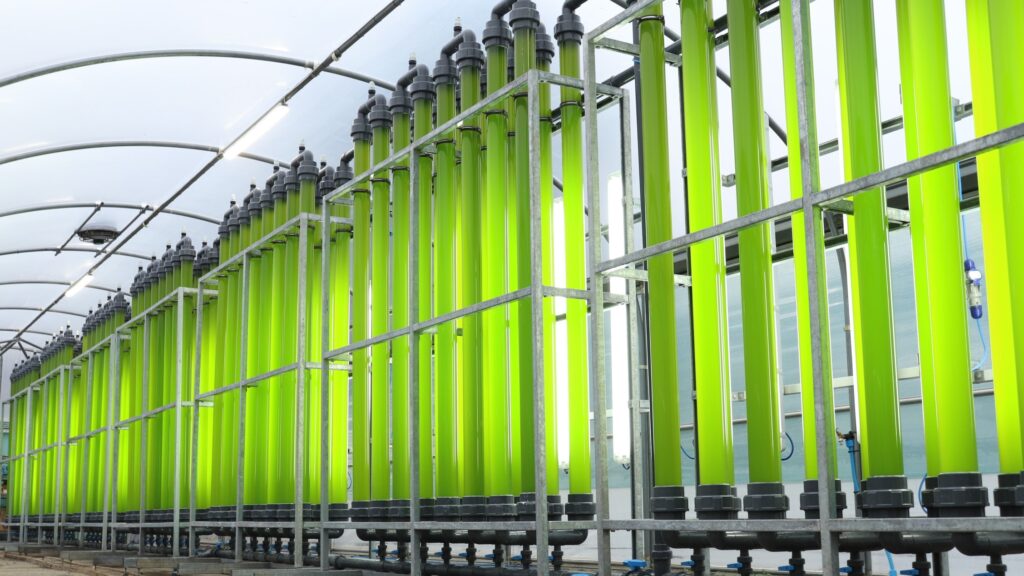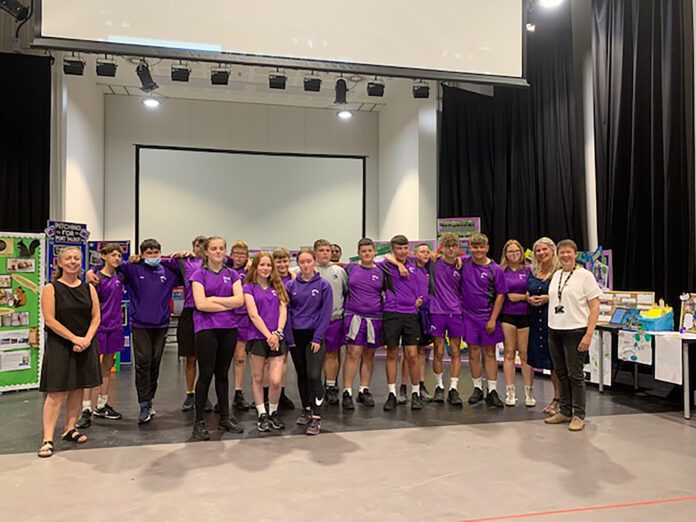A group of pupils have not only been learning about a new way of using waste carbon emissions, but they have also made their own film to spread the word about the exciting project.
Working with experts from Swansea University, the year 9 pupils from Ysgol Bae Baglan explored the benefits of the innovative algae biorefinery at the Vale nickel refinery in Clydach, Swansea Valley.
Staff from the University’s Centre for Heritage Research and Training (CHART) team and film-maker Jamie Panton helped the pupils create a short documentary about the biorefinery and how it is using waste carbon dioxide to help grow algae which can be used to help feed animals and grow food.
The pupils say the project was very enjoyable and gave them a valuable insight into how scientists are developing ways of positively impacting climate change.

One of the young filmmakers said: “I feel more confident about the future of humanity because these people are trying to help the environment by growing algae. This
project has given me the hope that we can fix our world.”
The biorefinery was developed by researchers at the Energy Safety Research Institute at the University as part of a larger-scale project called Reducing Industrial Carbon Emissions (RICE), part-funded by European Regional Development Fund, through Welsh Government.
In their film the students fully described the process used at Vale along with their reflections on the way climate change is being tackled by this type of innovative science.
After training in documentary film making, the pupils captured a range of footage on site, as well as writing their own questions for interviewees Vale technical manager Peter Martin and the University’s Dr Thomas Ainscough who developed the biorefinery.
Eira Rowe, from the RICE Project, explained that finding impactful ways of communicating new approaches to alleviating the impact of climate change is fundamental to their work.
She said: “Storytelling is an important element of that. Enabling the students to visit our algae demonstration unit at Vale, which many will know as the Mond in Clydach, to meet and interview our scientists has given them real optimism for the future, and hopefully ideas for future careers in science where they themselves will be able to make a difference.”
Science teacher Kelly Jones said: “The pupils had such a wonderful experience. They thoroughly enjoyed being a part of the project. It’s great to know this is on our doorstep.”
CHART’s Dr Tracy Breathnach, who initiated the film project, said: “This has been a fantastic collaboration between different departments in Swansea University, Vale refinery and Ysgol Bae Baglan, in which we have all learned, shared knowledge and ideas about sustainable futures.
“It’s been great to hear the pupils telling their own story about how they perceive the future in their film. Working with our local communities – both industry and schools –
is a vital part of our Civic Mission strategy at the University.”
The film project was funded by Research Wales Innovation Fund, Welsh Government and it was launched as part of a wider collaborative project between Ysgol Bae Baglan and CHART which explored how universities can support schools to innovate in delivering the new curriculum for Wales.
The team at CHART collaborated with the school humanities staff on a cross-humanities project about Port Talbot called Enterprising and Sustainable Future which involved making links with local industry partners Vale and Tata Steel.
Further information is available from the CHART team
Help keep news FREE for our readers
Supporting your local community newspaper/online news outlet is crucial now more than ever. If you believe in independent journalism, then consider making a valuable contribution by making a one-time or monthly donation. We operate in rural areas where providing unbiased news can be challenging. Read More About Supporting The West Wales Chronicle




















